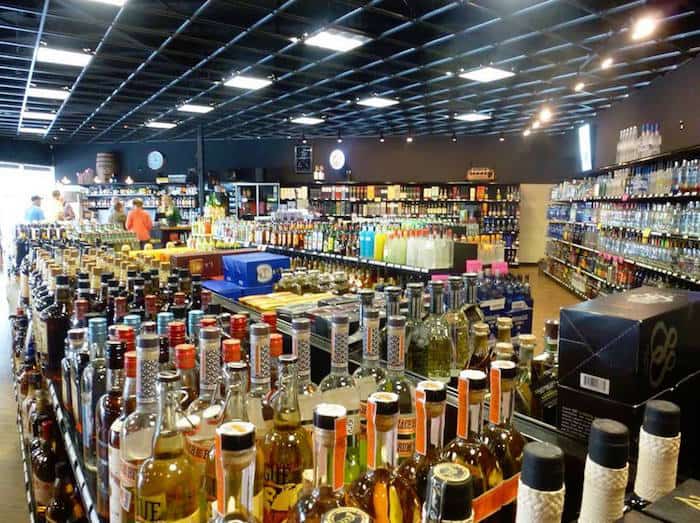Editor’s Note: We’ve just launched sign ups for our upcoming The Whiskey Wash newsletter. Click here to join our list and stay informed!
Oregon, where The Whiskey Wash is headquartered, is one of the so-called control states when it comes to liquor. It is, quite simply put, a Prohibition-era leftover in which the state government has a heavy-handed approach to sales of spirits such as whiskey. It is the last control state on the West Coast, with California having been private market driven for some time and Washington joining the club a few years back. Privatization forces are now pushing to make it happen here as well, which may explain in part why the Oregon Liquor Control Commission is quickly looking to expand the number of places where you can buy your favorite brown spirit.
To date, if you wanted to buy hard liquor in Oregon, you either had to get it directly from one of the local craft distilleries (their own products) or a state liquor store licensee. The problem is that there just aren’t that many of these stores around, particularly in the Portland metro area, which has the largest population inthe state.
As the OLCC noted in announcing news of its new expansion, there is only one liquor store on average per 25,000 customers in and around Portland. Though I don’t have specific numbers I can tell you, by observation, there are a lot more pot shops than liquor stores after retail marijuana sales were approved a few years back.

Buying whiskey in Oregon is, depending upon your opinion, either a really great experience or a really crappy one. On the one hand, prices here are among some of the best in the nation, often at or just a little above what the distilleries suggest. This even holds true with the harder to come by stuff, such as the Van Winkle expressions. That said, product selection is more limited compared to places like California, and consumers wanting rarer bottlings often have to compete against bars, who must also buy from the same liquor stores private individuals frequent.
Enter then this new experiment. The OLCC has authorized 14 new retail liquor locations, supporting “various business models” such as “adding a spirits section inside existing retail stores.” While it is not publicly stated by them, this could easily be interpreted as an effort to try and stave off privatization, which has a pretty solid chance of passing if it gets enough signatures to be on the ballot.
Looking at the list of new retail liquor locations approved by the state, which only slightly changes the ratio mentioned earlier to 1 liquor store per 21,000 customers, one notes a big box retailer is among those with multiple placements – Walmart. That’s right – Walmart. They were perhaps the biggest winner out of some 32 applicants which presented before the OLCC earlier this month. The commissioners attached to this neolithic agency said they made their final selections “based on the applicants’ background, knowledge and experience in retail business management, inventory/cash management, retail sales and operation, customer service/public relations in a retail environment, and the financial ability to open and operate a retail liquor store.”
“Selecting these 14 retail locations is a step forward in our effort to increase store density while offering new and innovative market-driven business models where customers can purchase spirits in Oregon,” said OLCC Chair, Rob Partridge, in a statement. “For more than two years we have been working toward system expansion and have sought input from existing liquor store owners, distillers, brewers, wineries, distributors, retail licensees, legislators, and representatives of the alcohol moderation community.”
The Open Recruitment process used to select these liquor stores greatly helps us improve the ratio of retail locations to customers in the Portland metro area.”
It should be noted the OLCC also said it will “evaluate the new open recruitment process to fine tune it for use in additional areas of the state later this year.” Of course, if privatization passes, it could end up being a case of too little, too late.



